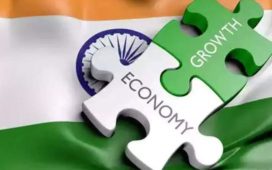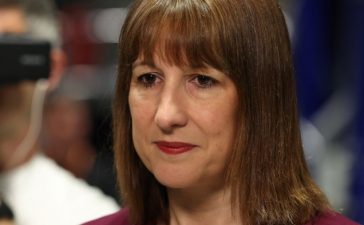She said she would look for more confirmation of India’s resilience to supply shocks and the anchoring of inflation expectations, while citing global risks, domestic political flux and the progress of the monsoon as uncertainties that shaped her view of a status quo on rates in April.
Over the past year, the RBI has, on several occasions, said that its aim is to drive CPI inflation back to the 4% target, and that it is not enough for the price gauge to be within the 2-6 tolerance band of the MPC. CPI inflation was at 4.85% in March.

Meanwhile, Shashanka Bhide, another external member of the MPC, said in an emailed response to ET that he expects food inflation – a persistent source of worry for the RBI for many months now – to ease in 2024. “A favourable monsoon would be a key to softening of food prices this year, particularly for the foodgrains,” Bhide said. “As far as inflation is concerned, the high rates seen last year would mean that the food inflation rates would be more moderate now, unless there is a fresh momentum…overall, the food inflation is expected to be lower in the current year.”
On the escalation in tensions between Israel and Iran – which occurred after the MPC’s April policy meeting – both policymakers acknowledged the inflation spill-over risks from fresh geopolitical tensions, but sounded hopeful that the conflict would be contained.
“At such a time, stability must be the priority…Moreover, the tensions seem to be settling down somewhat with an end to the strike, counter-strike pattern between Israel and Iran,” Goyal said.
Bhide said that while the conflict has affected supply chains, the impact “appeared to have been largely contained”. However, in an already volatile global environment, the present escalation increases risks on the energy front and broadly on the ongoing recovery of international trade, he said.
Goyal said that at the current juncture, there is no overheating or excess demand in the economy, as evidenced by the sharp decline in core inflation, which strips out the volatile components of food and fuel. She said supply-side actions and credible anchoring of inflation expectations had helped bring inflation down without excessive increases in interest rates.
“The MPC needs to make sure policy does not durably become more contractionary as inflation falls and, therefore, the real repo rate rises,” she said.
In an interview with ET on Friday, Jayanth Varma, the third external member of the six-member MPC, had warned that keeping interest rates high could prevent a revival in private sector investment. Varma, the only MPC member to vote for a rate-cut in April, said the projected slackening of economic growth in the current fiscal year is a matter of concern to him. The MPC has forecast real GDP growth at 7% in the current fiscal year. The government’s estimate for growth in the previous financial year is 7.6%.











